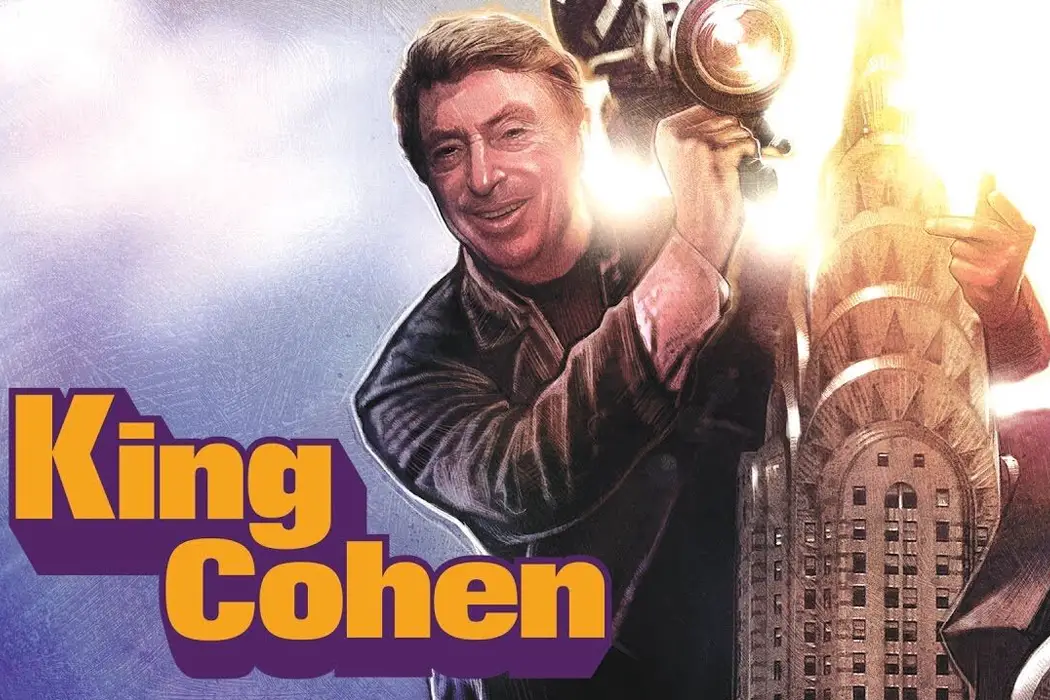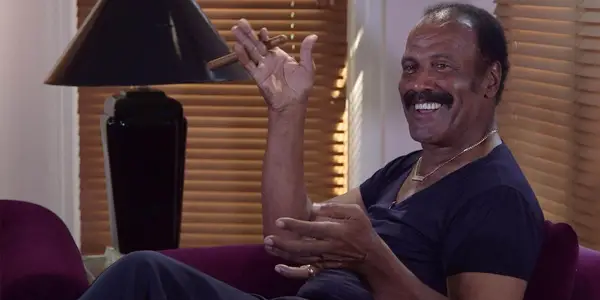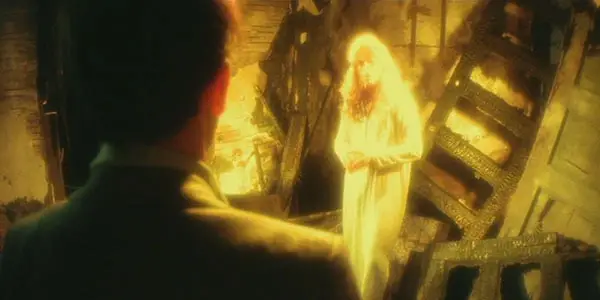KING COHEN: The Story Of A Renegade Filmmaker

Alex is a 28 year-old West Australian who has a…
A strong sign that Larry Cohen is a truly original filmmaker is that it’s hard to find anyone else that truly matches his idiosyncratic style, but at the same time, it’s easy to point to a variety of today’s prominent genre directors who were influenced by the New York visionary. Eli Roth, James Wan and sci-fi king J.J. Abrams all willingly acknowledge the effect that Cohen’s films had on them, an attitude endearingly detailed by Abrams, who recalls the time that he assisted the director when his car broke down near his school bus stop, an encounter that Cohen himself remembered decades later – so much so that he could even name the other friend who was with Abrams that day (who was Dom DeLuise’s son).
Steve Mitchell, who has made his own mark in the world of exploitation cinema by writing the goofy robot-slasher flick Chopping Mall, channels this perpetual appreciation for Larry Cohen in King Cohen, a documentary tribute to an individualistic artist whose name might not have instant recognition, but he’s definitely made a film that you’ve heard of.
Cohen’s Career
King Cohen starts with Cohen’s early years, a career that, like a lot of fellow American auteurs at the time, began in the world of television. The transition from humble page to authoritative show-runner comes across as effortless to the affable writer, who manages to casually mention that he sold his first TV script at only 17 years of age.
His success with The Invaders and Branded (an idea that was devised purely from the front cover of a magazine before a pitch meeting) garnered him some Hollywood attention, a vocation that began with Bone, the subversive black comedy that struggled to find an audience at the time. Despite having an African American lead, it wasn’t a traditional blaxploitation picture, but it was still too distressing for the conservative public who couldn’t quite reconcile with the idea of an older white woman having an affair with the physically-intimidating Yaphet Kotto.

This melding of two opposing styles would be the definitive sign of a Larry Cohen movie, usually a police-procedural narrative paired with an exploitative element, whether it be a giant winged creature (Q, The Winged Serpent), domestic terrorists who are forced by ‘God’ to commit murder (God Told Me To), lethal yoghurt (The Stuff) and even killer babies in his most successful commercial release, the It’s Alive trilogy, a trio of off-beat horror films whose first entry managed to knock the box office titan The Exorcist off its top spot with just a quarter of its resources.
The People Behind the Man
Mitchell’s affectionate portrait of Larry Cohen is comprehensively illustrated thanks to an expansive collection of archive material, film clips and talking heads, whose lineup includes a cinephile’s dream lineup of character actors, family members and past collaborators, all whose cheerful disposition to talk about the man clearly backs up the numerous claims about his great personality. Directors such as Joe Dante, John Landis, Martin Scorsese and Mick Garris all get a moment to personalize their own love for Cohen’s eclectic creations, a body of work which is perfectly summed up by Scorsese when he sombrely mentions that he misses “the pictures he made, I miss his spirit, and I miss the spirit of the times, the renegade spirit”.
Alongside Sweet Sweetback’s Baadasssss Song, Cohen’s sophomore effort, Black Casaer, is presented as being one of the principal releases in popularising the blaxploitation genre. Fred Williamson, the film’s star and one of the leading men of that genre, is one of the many actors who pop up to sing the praises of Cohen. Williamson is joined by Cohen’s other go-to actor, the eccentric Michael Moriarty, as well as Traci Lords, Robert Forster, Eric Bogosian, Eric Roberts and more, whose behind the scenes anecdotes and hagiographic praise for the titular subject provide for most of the film’s charms (as a fan of Blumhouse’s Shock Waves podcast, it was a delight to see critic-turned-producer Ryan Turek get to talk as well).

One hilarious segment in particular sees Williamson recount a time when Cohen tried to pitch him a stunt in Black Casaer which involved him jumping out of a running cab, a dangerous trick that the actor wouldn’t perform without Cohen doing it himself first. A contrasting description of events, with one claiming he did it and other saying the opposite, speaks to Cohen’s anarchic brilliance, a reminder of the perilous nature of old-school independent film production, which is why Williamson dubbed him the king of ‘stealing shots’.
Hollywood Man
Speaking to his old-school sensibilities, much like Quentin Tarantino, Peter Bogdanovich and Jim Jarmusch, Cohen is clear admirer of the times of Old Hollywood. His passion for the bygone era is demonstrated through his continued casting decisions of ‘forgotten’ silver screen idols, such as legendary director Samuel Fuller, composer Bernard Herrman, comedian Red Buttons and most controversially, actress Bette Davis, whose pencil-thin appearance in Cohen’s suburban-witch misfire Wicked Stepmothers was obviously her personal rock-bottom, a revelation that forced her to quit the production half-way, a decision that devastated the usually-optimistic director.

Like the start of his illustrious career, Cohen’s later years have been spent purely writing screenplays (as opposed to his triple threat feats of his prime), selling a large amount of high concept genre pictures that have equated to levelling degrees of success. Phone Booth, Guilty as Sin, Maniac Cop, Best Seller and Cellular are all highly original hits that came from Cohen’s hand, as he claims that he still scribes at least 20-25 pages a day – when he’s not acting out potential scenes into his trusty dictaphone. Even when setting up for a recent convention appearance, Cohen throws out a new ad-libbed film pitch: “Murder At the Festival”, a slasher that follows a man with a hatchet who starts chopping people up at a comic book convention. Hell, from that logline alone I’m all in if he wanted to make it.
King Cohen: Conclusion
Much like Noah Baumbach and Jake Paltrow’s terrific profile on Brian De Palma last year (De Palma), Steven Mitchell’s detailed retrospective on Larry Cohen knows when to sit back and let the man of the hour take control, a charismatic personality who has enough great stories in him to fill several sequels. Mitchell’s systematic approach to Cohen’s diverse output gives a nice balanced feeling, which makes sure that his forgotten, outlandish missteps gets as much time as his mainstream successes.
Viewers who haven’t seen Cohen’s work will immediately want to hit a streaming service after watching King Cohen, and those who are already fans, will be given a nice reminder as to why the self-reliant provocateur remains such a loveable figure within the industry. If you love distinctive genre cinema, this is 105 minutes well spent in the company of talented people who love it just as much as you do.
Do you have any favourite Larry Cohen films? Tell us your thoughts in the comments below!
Does content like this matter to you?
Become a Member and support film journalism. Unlock access to all of Film Inquiry`s great articles. Join a community of like-minded readers who are passionate about cinema - get access to our private members Network, give back to independent filmmakers, and more.













